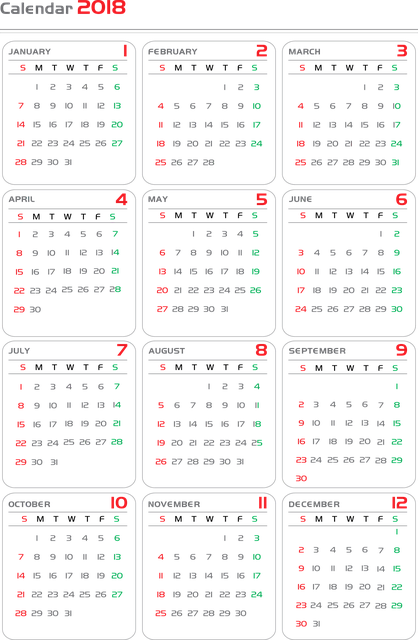Registered Training Organisations (RTOs) can enhance their operational efficiency by integrating calendar syncing and automated scheduling technologies tailored specifically for the education sector. These tools enable RTOs to synchronize educational activities and administrative tasks across platforms, preventing conflicts and ensuring that training sessions, assessments, and significant events are aligned without overlap. This integration not only streamlines daily operations but also provides a structured learning environment that leads to better student outcomes. By automating routine scheduling tasks, RTOs can reduce errors, offer real-time updates, and focus on delivering high-quality education and training services. The adoption of such systems allows for the efficient use of time and resources, ultimately fostering a responsive and adaptable educational landscape. For RTOs looking to maintain excellence and navigate the evolving educational landscape, calendar syncing emerges as an indispensable tool, facilitating a harmonious synchronisation of events that aligns with their educational objectives and enhancing overall operational efficiency.
In the dynamic realm of education and training, Registered Training Organisations (RTOs) are continually seeking innovative solutions to enhance staff efficiency and streamline operations. A pivotal aspect of this pursuit is the strategic deployment of calendar automation tools. This article delves into how RTOs can leverage Registered Training Organisation calendar syncing and automated scheduling to significantly boost efficiency. We will explore the integration of calendar tools, the coordination of events, and the best practices for implementation. By navigating through these sections, RTO staff and trainees will discover ways to optimise their time management and operational workflows, ensuring a harmonious and productive learning environment.
- Leveraging Calendar Syncing to Streamline Operations at Registered Training Organisations
- The Role of Automated Scheduling in Enhancing Operational Efficiency for RTOs
- Integrating Calendar Tools to Optimise Time Management for RTO Staff and Trainees
- Strategies for Seamless Event Coordination within RTO Environments Using Calendars
- Best Practices for Implementing Calendar Automation in Registered Training Organisations
Leveraging Calendar Syncing to Streamline Operations at Registered Training Organisations

In today’s fast-paced educational environment, Registered Training Organisations (RTOs) are under increasing pressure to manage their schedules effectively. One of the most impactful strategies for enhancing operational efficiency within an RTO is through the implementation of calendar syncing solutions. By leveraging automated scheduling tools tailored specifically for RTOs, educators and administrative staff can synchronise their calendars across various platforms, ensuring that training sessions, assessments, and important events are all aligned without manual intervention. This seamless integration eliminates the risk of double-booking or scheduling conflicts, allowing RTOs to operate with greater precision and responsiveness to the needs of students and staff alike. The result is a more organised learning environment where both teaching and administrative tasks can be executed smoothly, leading to improved student outcomes and freeing up valuable time for RTO staff to focus on delivering high-quality education and training services.
Furthermore, by embracing calendar syncing technology, RTOs can streamline their operations by automating repetitive tasks associated with scheduling. This not only boosts efficiency but also reduces the potential for human error. The ability to automatically update calendars when changes occur means that all stakeholders are immediately informed of any schedule adjustments, ensuring that everyone is on the same page. Such systems can be configured to handle a variety of tasks, from room bookings to staff rostering and student appointment scheduling. By harnessing the power of these calendar tools, RTOs can create a more efficient, coordinated, and responsive environment, which is essential for maintaining high standards of training delivery in an ever-evolving educational landscape.
The Role of Automated Scheduling in Enhancing Operational Efficiency for RTOs

Integrating Calendar Tools to Optimise Time Management for RTO Staff and Trainees

Integrating calendar tools within a Registered Training Organisation (RTO) can significantly enhance the time management capabilities of both staff and trainees, leading to an optimised operational environment. By leveraging automated scheduling for RTOs, administrative tasks associated with organising appointments, training sessions, and assessments become streamlined, reducing the cognitive load on staff. These tools allow for seamless calendar syncing across various platforms, ensuring that everyone involved is on the same page regarding timetables and deadlines. This synchronisation eliminates the risk of double-bookings and ensures that all stakeholders have immediate access to the most up-to-date information. As a result, RTO staff can focus more on delivering quality education and less on administrative coordination, thereby boosting efficiency and allowing for better allocation of resources.
Furthermore, incorporating calendar automation tailored to the needs of an RTO can transform how training programs are managed. With automated scheduling, staff can set up recurring events for regular classes or workshops, manage trainee enrolments with ease, and track progress against course timelines. These tools can also send out reminders and updates to trainees, which helps in maintaining high levels of engagement and ensuring that learners are well-informed about their training schedules. By adopting such calendar tools, RTOs can not only enhance the efficiency of their operations but also provide a more organised and predictable learning environment for their trainees, ultimately contributing to the success of the educational programs offered.
Strategies for Seamless Event Coordination within RTO Environments Using Calendars

In a Registered Training Organisation (RTO), managing events and schedules efficiently is paramount to maintaining a smooth operational flow. To this end, integrating calendar automation tools can significantly enhance coordination within the organisation. By employing registered training organisation calendar syncing across various platforms, staff members can have real-time updates on course timings, venue availability, and trainer assignments, thereby eliminating scheduling conflicts and ensuring that all educational activities run without a hitch. Automated scheduling for RTOs allows for the dynamic allocation of resources—from classrooms to trainers—based on predefined rules and preferences. This not only streamlines the process but also empowers staff to focus on delivering quality training rather than getting bogged down in administrative tasks. By leveraging these calendar tools, RTOs can boost efficiency, as manual entry errors are reduced, and time-consuming coordination efforts are minimised. The result is a harmonious synchronisation of events that aligns with the educational goals of the organisation, ensuring that both learners and educators benefit from a well-structured and consistent learning environment.
Best Practices for Implementing Calendar Automation in Registered Training Organisations

Implementing calendar automation within a Registered Training Organisation (RTO) can significantly enhance operational efficiency and streamline daily tasks for staff. To ensure a smooth transition to automated scheduling, it is crucial to first conduct a thorough assessment of current systems and processes. This evaluation will identify specific needs and challenges that the new system should address. Once identified, RTOs should select calendar tools designed specifically for educational environments, which offer robust syncing capabilities and are capable of integrating with existing learning management systems and other essential platforms.
RTOs can maximise the benefits of automated scheduling by adopting best practices during implementation. These include clear communication with staff about the new system’s features and functionalities, providing comprehensive training to ensure all users are proficient in managing the calendar tools, and establishing protocols for data entry to maintain accuracy and consistency. Additionally, it is advisable to set up regular system audits to identify any discrepancies or issues early on. By leveraging calendar automation, RTO staff can focus more on delivering quality education and less on administrative tasks, thereby boosting efficiency with calendar tools tailored for the unique demands of a training organisation’s environment.
In conclusion, the integration of advanced calendar automation systems within a Registered Training Organisation’s framework can significantly enhance staff and trainee time management. By implementing synchronized calendars and sophisticated automated scheduling, RTOs can achieve greater operational efficiency. The strategies outlined in this article, from leveraging calendar syncing to coordinating events with precision, provide a clear path for RTOs to boost their efficiency. Adopting these best practices not only streamlines daily operations but also aligns the organisation’s workflow with modern technological advancements. As a result, RTO staff can focus on delivering high-quality education and training services, ensuring that their efforts are optimally directed towards their core mission of empowering students through effective learning experiences.
